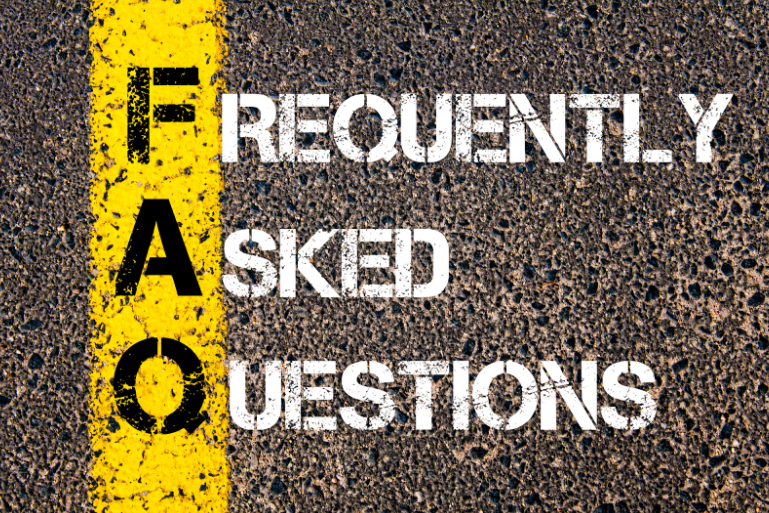Understanding the True Cost of Drug Rehab Without Insurance

Grasping the expense involved in drug rehabilitation without insurance coverage is crucial for individuals tackling addiction. In scenarios lacking monetary support, the cost of treatment can vary widely from $600 to a staggering $60,000+ based on both the nature and length of the program chosen. This article will cover these various expenses, dive into the economical options available, and provide methods for efficiently handling costs associated with drug rehab.
Key Takeaways
- The cost of drug rehab without insurance varies significantly depending on the type of treatment, duration, and location, with potential expenses ranging from free programs to thousands of dollars per day.
- Affordable alternatives such as sliding scale fees, state-funded programs, and nonprofit organizations can help reduce the financial burden of rehab without compromising quality care.
- Managing rehab costs without insurance can involve using personal savings, loans, crowdfunding, fundraising, and employer assistance programs, along with long-term financial benefits outweighing the initial treatment costs.
Introduction
Grasping the cost dynamics of rehab for those without insurance is essential when confronting drug or alcohol addiction. A range of treatment options are available, all varying in expense and effectiveness. Being well-informed about these can enable you to choose wisely regarding your journey toward addiction treatment.
We’re going to dissect the financial obligations tied to medical detox as well as inpatient and outpatient programs, underscoring the elements that affect their prices. We will examine accessible substitutes and methods for financing so that you are equipped with the necessary tools to handle rehab costs proficiently.
Understanding the Basics of Drug Rehab Costs

The cost of drug rehab varies widely depending on several factors. From the type of treatment to the location and duration, each element plays a role in determining the overall expense. The cost of rehab can range from:
- Free programs
- Low-cost programs
- Programs covered by insurance
- Programs costing thousands of dollars a day
The benefits of substance use treatment, including addressing alcohol abuse and drug abuse, are profound, not only saving money but also saving lives.
Whether you’re considering inpatient rehab, outpatient programs, or medical detox, the financial implications can be significant. It’s crucial to understand these basics to navigate the complex landscape of drug addiction treatment effectively.
Breakdown of Drug Rehab Costs Without Insurance

On average, an individual can expect to spend around $13,000 on drug rehabilitation. These expenses fluctuate based on the chosen treatment option and its length. In cases where a person is not covered by insurance, this price can increase significantly—costing between $1,000 and $5,000 for each day or week of the program.
To provide a more detailed understanding of these costs, let’s examine the particular expenses associated with medical detoxification, inpatient rehabilitation programs, and outpatient care services.
Medical Detox
Often serving as the initial phase in addiction treatment, medical detox provides a safe environment under medical supervision for individuals to navigate withdrawal symptoms. The financial burden of such services without insurance can vary from a few hundred dollars to $1,500+ daily, with factors like the substance and facility affecting cost.
Alternatively, outpatient detox presents a less intensive option for detoxification services at approximately $1,000 per day. Despite these significant expenses included in addiction recovery’s early stages, undergoing medical detox remains an essential part of embarking on a secure and successful journey towards overcoming addiction.
Inpatient Rehab
Inpatient rehab offers a controlled and constantly supervised environment, which is integral to effective addiction treatment. The price for a month-long inpatient program can vary significantly if one doesn’t have insurance coverage – expect costs to be between $5,000 and $30,000+ based on the location of the clinic and the extent of care they provide. For example, short-duration programs in Tennessee are typically priced from $5,000 up to around $15,000.
Extended stays at an inpatient facility that span 60 to 90 days might incur charges ranging from approximately $12,000 all the way up to $60,000. These figures reflect the intensive nature of such treatments where patients benefit from consistent counseling availability as well as group therapy sessions and detoxification services – factors contributing towards justifying these high expense brackets.
Outpatient Rehab
Individuals can opt for outpatient rehab to obtain addiction treatment without having to leave their homes, which is convenient for those who must tend to work or family responsibilities. The expenses associated with outpatient programs when not covered by insurance can differ greatly. Some might be at no cost, while others could charge up to $500 per session. Over the span of a month, this may translate into an overall cost ranging from $1,400 and going up to $10,000.
Outpatient centers typically provide 90-day programs that on average may have a total rehab cost near the $5,000 mark. Although these offerings are not as intense as what’s found in inpatient rehabilitation facilities—where individuals stay onsite throughout their treatment—they still provide critical support services including counseling sessions, various therapeutic interventions and continuous medical care.
Factors Influencing the Cost of Drug Rehab
The expense of drug rehabilitation is affected by multiple determinants such as:
- The specific program selected
- The area where the rehab is situated
- The array of amenities and services provided
- How long the treatment period lasts
Being aware of these elements can assist you in making educated choices regarding your pathway to recovery.
Location
The cost of drug rehabilitation can be heavily influenced by the location of the rehab center, with facilities located in areas where living costs are elevated typically demanding higher fees for their services. Outpatient drug rehabilitation services, for example, have an average cost that varies among different states such as California, Massachusetts, North Carolina, and Alabama.
These particular states—California along with Massachusetts, North Carolina and Alabama—all share a similar range when it comes to the average costs associated with outpatient treatment.
On another note, more budget-friendly residential rehab options tend to exist in certain regions like Hawaii and Indiana. By acknowledging these variations in regional pricing structures for rehab centers across different states, individuals seeking treatment can locate a facility within their financial means.
Amenities and Services
A rehab center or treatment center can become more expensive due to the range of amenities and services it provides. Luxurious offerings such as:
- Therapy animals
- Private rooms
- Spas
- Massages
- Gourmet meals crafted by celebrated chefs
- Acupuncture
Contribute to escalating the costs associated with the treatment.
Although these premium features may improve the overall rehabilitation experience, they aren’t critical for successful treatment. When evaluating options for rehab, striking a careful equilibrium between opulence and need is crucial.
Duration of Treatment
Treatment duration is a pivotal element affecting the total cost of rehab, with extended stays typically correlating to increased expenses. Nevertheless, such longer durations are often associated with improved efficacy. Studies have shown that treatments extending for a minimum period of three months yield better outcomes, thus potentially elevating treatment costs.
The intensity and length of care needed significantly impact the cost involved in treatment. It is crucial to weigh up the necessity for prolonged therapy against any budgetary limitations when making educated choices regarding treatment plans.
Affordable Alternatives and Payment Options for Drug Rehab

Thankfully, a variety of cost-effective choices and financial arrangements exist for drug rehab. These encompass options like fees adjusted according to one’s ability to pay, programs financed by the state, and charitable entities—all providing different approaches to handling expenses while maintaining high standards of treatment quality.
Sliding Scale Fees
Treatment centers in the U.S., numbering around 2,000, utilize sliding scale fees to adjust treatment costs according to a patient’s financial capacity. This approach ensures that detox center services remain affordable for those whose income lies below a specific level.
By adopting sliding scale fees based on an individual’s ability to pay and overall income, these centers make it feasible for people with constrained economic means to access necessary care. Searching out facilities that offer this type of payment structure can greatly lessen the monetary strain associated with rehabilitation.
State-Funded Programs
Programs funded by the state frequently offer addiction treatment services at no charge or for a minimal fee to those who qualify. Included in these services are detoxification and various levels of care, encompassing both inpatient and outpatient programs.
The prerequisites for enrollment in state-funded rehabilitation programs hinge on aspects such as an individual’s income and their status as residents. Although finding these programs might necessitate extra investigation, they represent feasible alternatives for individuals pursuing cost-effective treatment options.
Nonprofit Organizations
Organizations that are not-for-profit may provide rehabilitation services at a lower cost or even without charge, contingent on their financial backing and organizational purpose. Such nonprofits typically depend on contributions and grants to support their rehabilitation initiatives.
Entities such as the Salvation Army have a reputation for delivering rehab services at no cost. For individuals who cannot bear the expense of standard rehabilitation costs, these affordable rehab alternatives offered by non-profits can serve as an essential support system.
Ways to Manage Rehab Costs Without Insurance
Navigating the financial burden of rehabilitation expenses without insurance coverage can be tough, yet there are multiple approaches to tackle it. These include utilizing personal savings or securing loans, engaging in crowdfunding and fundraising initiatives, and exploring assistance programs offered by employers.
Personal Savings and Loans
Paying for rehab through personal savings is a direct approach but could significantly reduce one’s financial cushion. Alternatively, securing a personal loan can offer the means to cover rehabilitation expenses, usually subject to interest rates and adherence to repayment plans.
Opting for a personal loan may alleviate immediate financial strain by distributing the cost of rehab over an extended time frame. It is crucial to consider both advantages and disadvantages when choosing between these methods in order not only make sound monetary choices but also secure necessary treatment.
Crowdfunding and Fundraising
Platforms such as GoFundMe and Fundly provide individuals with the opportunity to gather funds for rehabilitation expenses by communicating their personal experiences to a wide audience. It is vital for the success of a crowdfunding initiative to craft an engaging and truthful narrative.
Financial contributions from friends and relatives can be critical in shouldering the burden of rehab costs. Drawing on one’s social circles for assistance can greatly alleviate the financial strain associated with these expenditures.
Employer Assistance Programs
EAPs offer confidential and free support for employees with substance use disorders, which includes short-term counseling and referral services that are available without the knowledge of their employer.
These programs may extend eligibility to the family members of employees as well. Accessing EAPs can deliver crucial emotional and financial assistance throughout rehabilitation.
The Long-Term Financial Benefits of Rehab
Treatment for substance abuse offers a multitude of advantages, not the least of which includes financial gains. Key benefits include:
- Bettered mental and physical well-being
- Lower risk of experiencing an overdose or facing related health problems
- Enhanced relationships with peers and family members
- Greater productivity in educational settings or the workplace
- An overall enhancement in life quality
Individuals grappling with substance abuse on average incur expenses estimated at around $11,487 annually—significantly surpassing the typical expense for treatment, which is about $1,583 each year per person. This contrast underlines the considerable economic savings that can be realized through effective treatment programs.
The ripple effect of treating substance abuse also generates communal rewards by way of decreasing criminal activities and bolstering employment earnings. The deployment of public funds toward substance abuse treatment stands as a judicious allocation given its favorable cost-benefit ratio.
Finding the Right Rehab Center Without Insurance
Securing an appropriate rehab center when uninsured may seem daunting, but there are available aids. The SAMHSA National Helpline provides a round-the-clock confidential service that is free of charge and offers recommendations for nearby treatment facilities as well as organizations based in the community. They can be reached at 1-800-662-HELP.
By utilizing the HELP4U text messaging facility, individuals seeking assistance with substance use disorders can simply text their zip code to 435748 to discover local support services. Engaging directly with the administrative or admissions department of rehab centers could yield insights into potential avenues for those lacking insurance coverage.
Summary
Understanding the true cost of drug rehab without insurance is crucial for making informed decisions about addiction treatment. From medical detox to inpatient and outpatient programs, each option has its unique costs and benefits. Factors like location, amenities, and treatment duration significantly influence these costs.
Affordable alternatives and payment options, such as sliding scale fees, state-funded programs, and nonprofit organizations, can make rehab accessible to everyone. Managing costs through personal savings, loans, crowdfunding, and employer assistance programs further alleviates the financial burden. Ultimately, the long-term financial and societal benefits of substance abuse treatment far outweigh the initial costs.
Frequently Asked Questions

How much does drug rehab cost without insurance?
Depending on the program, drug rehab expenses without insurance can vary significantly, stretching from $1,000 to $5,000 for each day or week. It’s important to meticulously contemplate these considerable costs when selecting a program. There are also outpatient options and community-based organizations that offer more affordable addiction treatment cost, but may not provide the same level of care and support as inpatient programs. Many facilities also offer financial assistance or payment plans to help individuals afford the cost of rehab. It’s crucial to explore all available options and resources before making a decision on a treatment program.
Are there affordable rehab options available without insurance?
Certainly, economical rehabilitation choices are accessible via fees adjusted on a sliding scale, programs funded by the state, and charitable entities.
What are sliding scale fees in rehab centers?
Rehabilitation facilities offer sliding scale fees that adjust based on a person’s income and financial capability, making certain that those with constrained budgets can still access necessary services.
If you have insurance, please check the following insurance provider listings of treatment centers that may be in-network with your insurance carrier:
- Aetna
- Allied Trades Assistance Program
- AmeriHealth
- Anthem
- Beacon Health Options
- Blue Cross Blue Shield (BCBS)
- Bright HealthCare
- Carefirst
- Cigna
- ComPsych
- GEHA
- GuideWell
- Health Net
- HealthPartners
- HIGHMARK
- Humana
- Intermountain Healthcare
- Kaiser Permanente
- Magellan Health
- Medicaid
- Medicare
- MHN
- Molina Healthcare
- Optum
- Oscar
- Tricare
- TUFTS Health Plan
- United Healthcare


